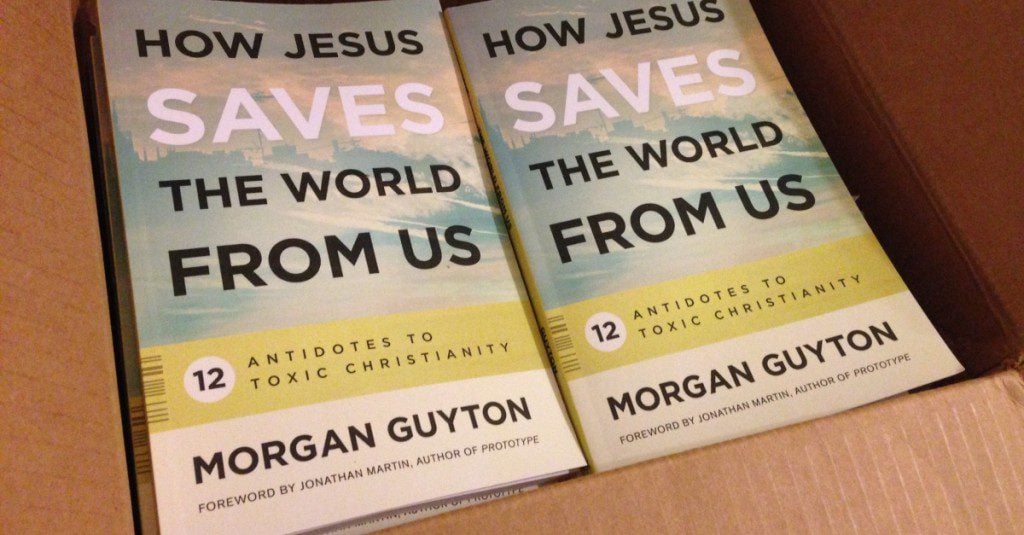From now until the release of my book How Jesus Saves the World From Us, I’m going to write twelve blog posts covering the themes of my twelve book chapters. My third chapter “Empty Not Clean” talks about the way that Jesus saves us from building gated communities to keep ourselves clean from every worldly taboo by showing us that our corruption comes from within and requires becoming empty rather than clean.
For the last three decades, the raison d’etre of the evangelical subculture that I come from has been to protect our kids from worldly corruption. As Andy Stanley corroborated in a recent sermon, the reason why evangelicals seek out megachurches is so that they can build entirely self-contained social networks for their families where their children will never see an R-rated movie or even hear a curse word. Many families pull their children out of the school system altogether so that they won’t be exposed to evolution, or even worse, LGBT-positive sex education.
The goal is to get your kids to adulthood without getting pregnant or addicted to drugs. The safest way to do this is to micromanage every aspect of children’s lives, like screening the music that they buy or making sure that they don’t go to any neighbor kids’ houses unless you determine that their parents are evangelical Christian too. The more paranoid your Christian community is about keeping the world out, the more patriarchal your families will become. Disgraced megachurch pastor Mark Driscoll had a famous graphic of an umbrella showing the layers of protection for Christian families: Jesus protects the pastor; the pastor protects the church; and each father protects his family.
When a Christian community pursues this kind of moral citadel approach to holiness, the results can be tragic, as they were in the Sovereign Grace megachurches where sexual abuse was covered up by church leaders because of their mistrust of secular authorities and legal processes. Even worse have been the far-right homeschooling and Quiverfull movements. When Christians presume that immorality is on the outside of our community and our task is to insulate ourselves from it, then the very walls we build to protect our families can become the source of devastating abuse.
Trying to stay clean by keeping the world out doesn’t work because the things that make us unclean are already inside of us. The problem with a moral citadel approach to holiness is it presumes the total depravity of everyone else. If we actually believe that we ourselves are sinners and not just the people who are outside of our gated Jesus communities, then we need to pursue holiness in a way that actually addresses the problem, which is that every single one of us has a heart full of idols. The pursuit of holiness is not so much a matter of keeping the dirt out of our hearts but decluttering the mess that’s already collected on the inside. We do not need to be kept clean so much as we need to be emptied.
I’m convinced that the path to holiness is through ascetic mysticism rather than moral legalism. What if instead of insulating yourself from every possible temptation, you focus on cultivating a taste for the divine experiences that make cheap idols less attractive. My idols are much more easily shattered when I engage in regular ascetic spiritual practices like fasting that create space for rich divine encounters. When I fast, the purpose is not to perform an onerous deed to prove my loyalty to God. It’s to make myself empty so that I can be filled with the Holy Spirit. The greatest joy in life that I’ve found has been when my stomach and heart are empty.
Please like my facebook author page!













